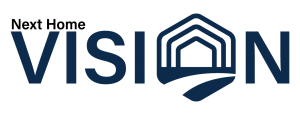Solar leasing is a viable solution to households’ and businesses’ solar energy access issues. Solar leasing is popular because it makes installing solar panels inexpensive without upfront fees. However, changes and technology are changing the scene. This essay will discuss how smart technologies, new financing choices, and panel efficiency are changing solar leasing.
New Financing Options
Innovative finance approaches have transformed solar leasing. Traditional leasing contracts required a down payment and were long-term. Community solar, Power Purchase Agreements (PPAs), and subscription models are becoming more popular. These solutions allow users to get solar energy without a large initial investment and pay for it at a set rate. Solar energy is more affordable to renters and others with less cash due to this flexibility.
Fintech has also simplified New Jersey solar leasing with new finance mechanisms. Financial innovations like solar crowdfunding have evolved as internet platforms enable investors to directly finance solar projects. These methods let homeowners finance solar projects without using banks.
Enhanced Panel Efficiency
Another leasing sector game-changer is solar panel efficiency technology. Next-generation solar cells can convert energy at 23% or more. These panels create more electricity from the same sunshine, making them appealing to leasing companies. Greater energy outputs allow leasing businesses to provide more competitive prices, benefitting customers.
Integration of Smart Tech
Smart technology in solar leasing schemes is changing the market. Residential and commercial solar systems may now be monitored and managed in real time using the Internet of Things (IoT). Smart meters with app-based interfaces let consumers view and monitor energy use. This integration improves energy efficiency and strengthens consumer-energy source relationships.
Move Toward Sustainability
The solar leasing sector is changing to be more ecologically friendly as worldwide awareness of climate change and sustainability grows. Sustainable product firms have grown as customers seek solutions that match their beliefs. This transition has raised demand for sustainable solar leasing solutions, increasing responsibility and transparency. This changing market will favor installation and leasing companies who use sustainable materials and ethical sources.
Changes in regulations and challenges
The solar leasing sector faces hurdles as it evolves. Regional market growth is affected by regulatory issues including state solar leasing and incentive regulations. Sector stakeholders must collaborate with legislators to promote solar leasing as an energy alternative via more unified and supportive laws. Solar leasing’s future depends on the industry’s capacity to adapt to changing market forces.
Conclusion
Emerging trends and technology will influence solar leasing’s bright future. As financing alternatives increase, panel efficiency improve, and smart technology is adopted, solar leasing might become a mainstream energy solution. The emphasis on sustainability and ethics will boost customer interest. However, resolving regulatory and consumer protection problems will be crucial to solar leasing industry development and legitimacy. Solar leasing may accelerate global energy transitions toward sustainability by utilizing these trends and developments.

